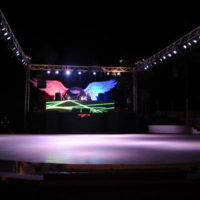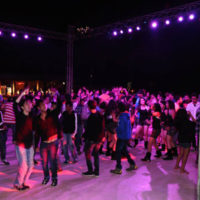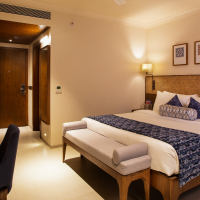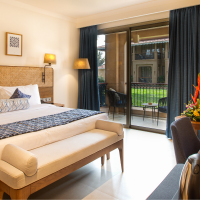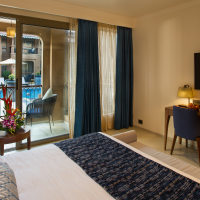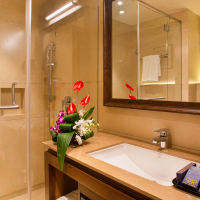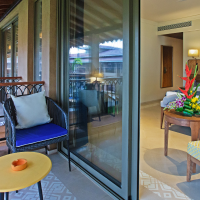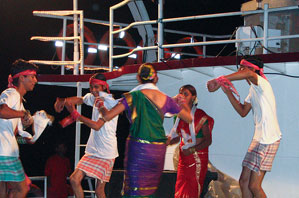
Goa is a place where even life takes it easy. The laidback attitude and easy going lifestyle is mainly due to the inherent affable Goan nature and the easily adaptable Goan traditions and customs. The place has been ruled by different empires and from time to time, the customs and traditions have been moulded according to their beliefs and thought patterns. This has led to the flexibility of the traditions and customs of Goa. Though laws prevailing in the state are stringent, people go easy on traditional practices.
The tradition of Goa is rich and possesses a unique legacy of different cultures. In Goa, tradition and customs have affected almost every aspect of its lifestyle. One can see the typical Portugal custom of constructing a house. Churches are in traditional Portugal style. People are free to practice the religion of their choice and they respect the existence of other religions too. At the same time, they move ahead with the world and are in sync with the latest trends and beliefs.
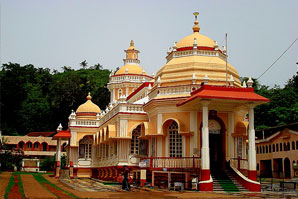
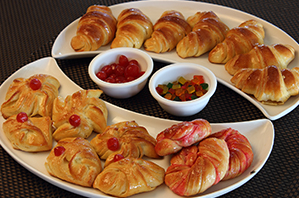
The traditions and customs of Goa have allowed secularism to flourish and have made people more tolerant towards other religious practices. It is not uncommon to see people from another religion going to a church or a temple or a mosque. They follow the tradition of their choice and at the same time respect other customs. This is what makes Goans stand out in a striking contrast to the rest of India. The Goan tradition and customs have truly given a unique identity to the state and made it a role model for others to follow
Susegado’ – laid-back or chilled out is how one would describe the typical Goan. The people of Goa are open and fun-loving; they have music coursing through their veins, and are ever ready to break into song and dance. Virtually every restaurant/ bar/ café boasts a live band, even if it’s no more than a single Spanish guitar! Their laid-back lifestyle is truly enviable. Where else, but in Goa, would you find motorcycle cabs? Or have the fine tradition of a post-lunch siesta that ensures everyone from shopkeepers to vacationers and even street dogs curl up for a postprandial snooze.
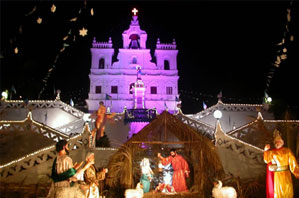
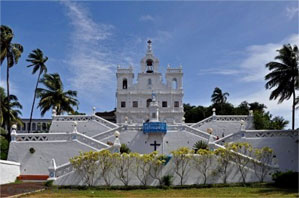
The culture of Goa is an amalgamation of Indian and Portuguese culture. The long Portuguese rule has influenced the culture in more ways than one and many of the Portuguese traditions are reflected in the Goan culture even today.
Dance and music is deeply embedded in the Goan culture. The most popular dance forms in Goa are Fugdi and Dhalo, which are traditional dances, performed only by women. Some dances are specific to an occasion or festival they are performed in. The Dhangar is performed during the Hindu festival of Navaratras and during the Shigmo festival women perform a lamp dance. Goa comes alive in the festive
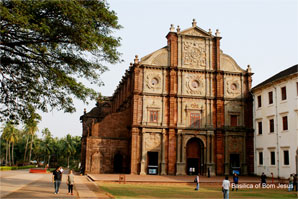
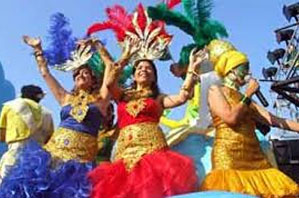
The crafts and arts of Goa also reflect Hindu, Muslim and Christian origins. Handicrafts are mainly made of materials easily available here like- clay, seashells, paper, bamboo, brass, wood, jute, stone and coconut shells amongst others. With the heavy inflow of tourists the handicrafts industry has also witnessed a boom. The Government of Goa has taken additional steps to further the handicrafts industry in Goa and has set up the Goa Handicrafts Rural and Small Scale Industries Development Corporation (GHRSSIDC) that has provided employment to many craftsmen.
The crafts and arts of Goa also reflect Hindu, Muslim and Christian origins. Handicrafts are mainly made of materials easily available here like- clay, seashells, paper, bamboo, brass, wood, jute, stone and coconut shells amongst others. With the heavy inflow of tourists the handicrafts industry has also witnessed a boom. The Government of Goa has taken additional steps to further the handicrafts industry in Goa and has set up the Goa Handicrafts Rural and Small Scale Industries Development Corporation (GHRSSIDC) that has provided employment to many craftsmen.



